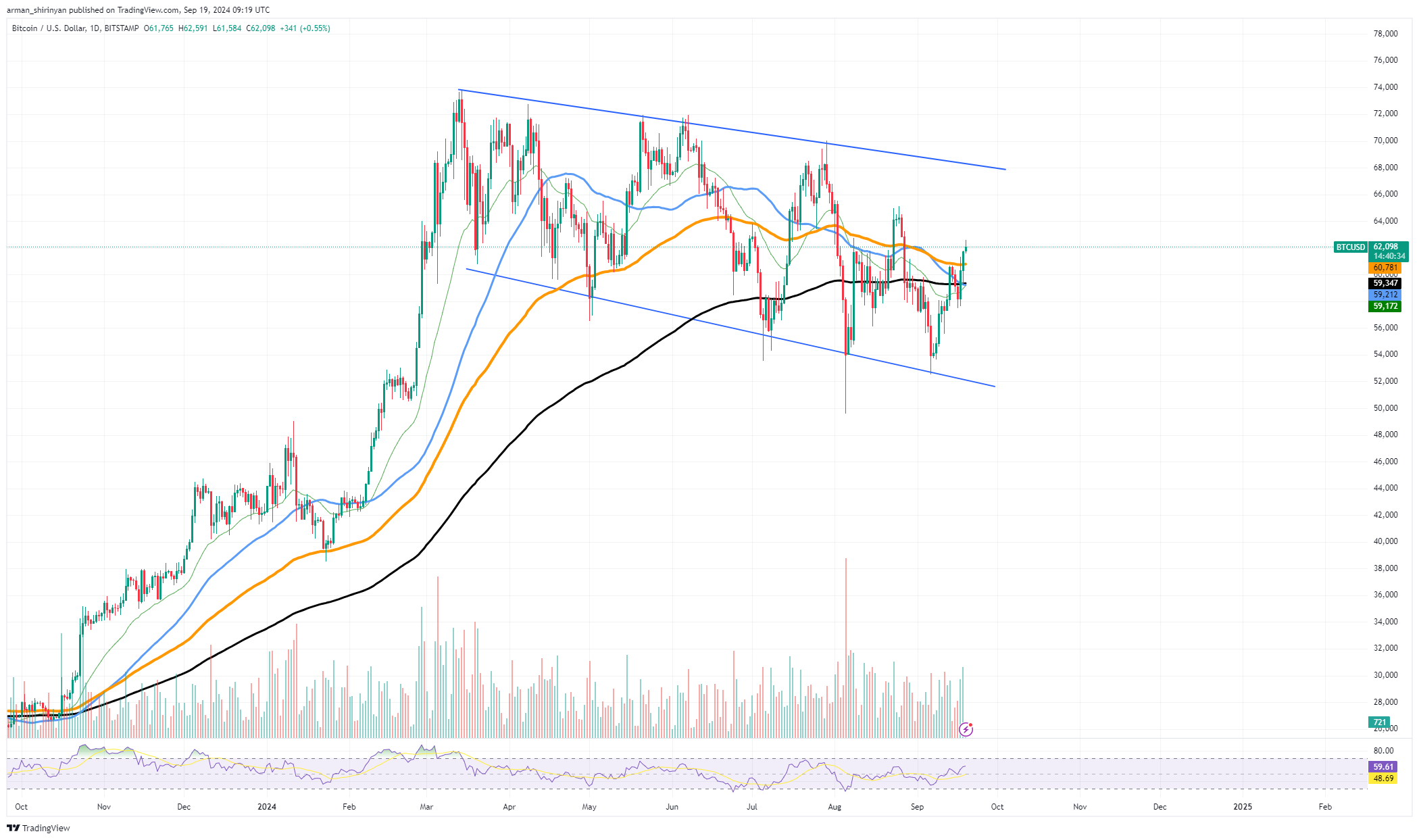
Disclaimer: The opinions expressed by our writers are their own and do not represent the views of U.Today. The financial and market information provided on U.Today is intended for informational purposes only. U.Today is not liable for any financial losses incurred while trading cryptocurrencies. Conduct your own research by contacting financial experts before making any investment decisions. We believe that all content is accurate as of the date of publication, but certain offers mentioned may no longer be available.
The largest asset manager in the world, BlackRock, has cautioned about the possibility of higher market volatility after U.S. Interest rates were recently lowered by 50 basis points by the Federal Reserve.
Though the rate cut may give markets a short-term boost, according to Jean Boivin, head of the BlackRock Investment Institute, it also increases the risk of volatility in the upcoming months, especially if inflation and economic growth in the U.S. do not match the Fed's forecasts.
Boivin noted that the state of the economy is still very uncertain. The near-unanimous agreement on the rate cut was somewhat surprising despite divergent opinions preceding the Fed's decision. He continued by saying that based on data from LSEG Refinitiv, financial markets are currently pricing in an extra 71 basis points of rate reductions from 2019.

Boivin, however, issued a warning that these hopes might not materialize and that actual good news might stem from economic growth that is more robust than anticipated rather than additional rate cuts. Part of the Fed's larger strategy to manage inflation while attempting to sustain economic growth is the decision to lower interest rates.
Though some analysts caution that if the rate cut is not carefully managed it could exacerbate inflationary pressures or result in economic imbalances, the long-term effects of the move are still unclear. This development may have significant implications for the cryptocurrency market, especially for assets such as Bitcoin and Ethereum.
Generally speaking, rate reductions increase the cost of borrowing and boost financial market liquidity. For riskier assets like cryptocurrencies, which often gain from a more accommodating monetary policy, this may be advantageous. Short-term bullish conditions for Bitcoin and Ethereum could result from the rate cut as investors look for greater returns in low-interest environments.

 Vladislav Sopov
Vladislav Sopov Dan Burgin
Dan Burgin